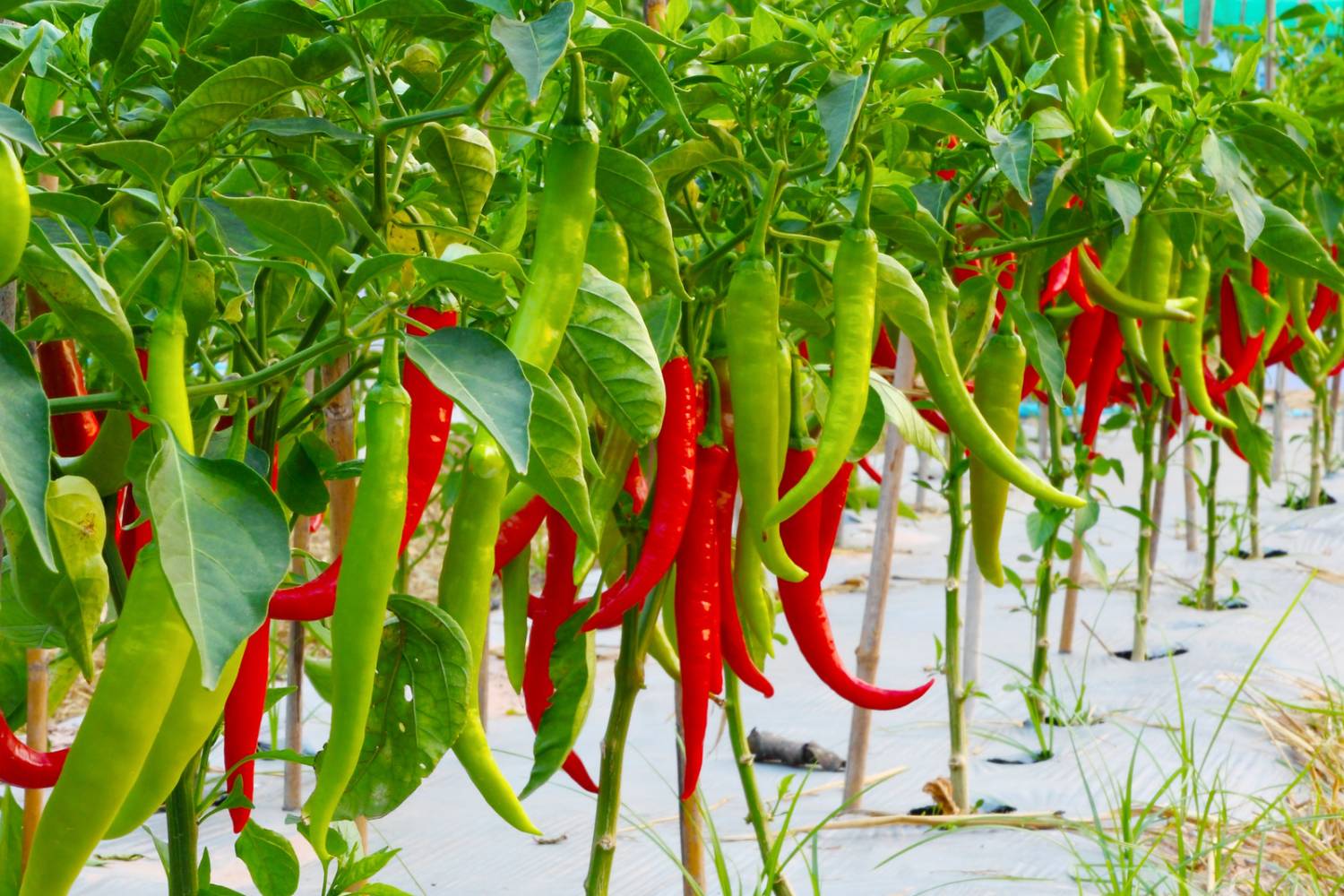Best Fertilizers for Peppers: Maximize Plant Health and Yield
Best Fertilizers for Peppers: Maximize Plant Health and Yield
Blog Article
Organic Vs. Synthetic Fertilizers: Which Is Best for Nurturing Healthy Pepper Plants?
In the world of supporting healthy pepper plants, the selection in between artificial and natural fertilizers stands as a pivotal choice with significant implications. While both options purpose to supply vital nutrients to support plant development, the nuances of their effect on the dirt, plant health and wellness, and the environment trigger a discussion that echoes throughout the gardening area. Understanding the distinctive benefits and possible mistakes of each plant food type is essential for pepper farmers seeking to maximize their yields while keeping an eco-conscious and lasting method.
Advantages of Organic Fertilizers
Organic plant foods offer an environmentally-friendly and sustainable technique to beneficial pepper plants, offering essential nutrients without using artificial chemicals. These natural plant foods are originated from organic resources such as garden compost, manure, bone meal, and seaweed, advertising soil health and wellness and biodiversity. Unlike artificial fertilizers, organic alternatives launch nutrients slowly, making sure a steady and balanced supply for pepper plants to flourish.
One considerable advantage of natural fertilizers is their capability to enhance dirt framework and water retention. By enhancing soil health and wellness, natural plant foods advertise advantageous microbial task, which assists in nutrient uptake by pepper plants. In addition, organic fertilizers decrease the danger of chemical run-off, securing water resources from air pollution and safeguarding the environment.
Additionally, organic fertilizers contribute to long-lasting soil fertility by promoting the growth of helpful dirt microorganisms. These organisms assist break down organic matter, releasing nutrients in a kind that is conveniently accessible to pepper plants. best fertilizers for peppers. By fostering a healthy soil ecosystem, organic plant foods sustain lasting pepper growing methods that benefit both plants and the environment
Drawbacks of Artificial Plant Foods
Synthetic fertilizers, in comparison to their organic equivalents, present different negative aspects when used to nurture pepper plants, impacting both plant wellness and ecological sustainability. One major drawback of artificial fertilizers is their propensity to leach nutrients from the soil quickly.
Additionally, the overuse of synthetic fertilizers can add to water contamination. Excess plant foods not absorbed by plants can remove right into water bodies, resulting in eutrophication, where algae blossoms deplete oxygen levels in the water, hurting marine life. Synthetic plant foods are typically derived from non-renewable resources, such as fossil gas, adding to carbon emissions and environmental deterioration during their manufacturing.
Nutrient Absorption Contrast
When comparing synthetic and organic plant foods in terms of nutrient absorption, natural fertilizers have the advantage of providing an extra well balanced and slow-release source of nutrients. Organic fertilizers contain a selection of macro and trace elements that are not only advantageous for the plants basics but additionally advertise healthy dirt microbial task, which aids in nutrient uptake.
Furthermore, natural fertilizers enhance dirt structure and water retention ability, permitting pepper plants to gain access to nutrients more successfully. This enhanced soil top quality helps with origin advancement, enabling far better nutrient absorption. Synthetic plant foods, although at first boosting plant development due to their high nutrient focus, may impede long-term nutrient absorption by derogatory soil health and wellness over time.
Ecological Impact Factors To Consider

On the other hand, synthetic fertilizers, although frequently more focused and immediately available to plants, can have damaging impacts on the atmosphere if not used effectively (best fertilizers for peppers). Their manufacturing anonymous needs high energy inputs, leading to greenhouse gas exhausts and adding to climate change. In addition, the overflow of excess synthetic plant foods can pollute water sources, leading to eutrophication and damaging water communities.
Best Fertilizer Practices for Peppers
To accomplish this, it is necessary to adhere to finest plant food methods tailored to the particular requirements of pepper plants. One important method is to do a soil test before using any go to these guys kind of plant foods.
One more crucial method is to fertilize pepper plants at the correct time. Generally, peppers gain from obtaining plant food at planting and then again when they begin to blossom. Over-fertilizing can result in nutrient imbalances and damage the plants, so it is crucial to comply with recommended application prices.
Furthermore, selecting a balanced plant food with an NPK ratio that suits pepper plants' needs is essential. Organic fertilizers, such as garden compost or manure, can be outstanding choices as they launch nutrients slowly and boost soil framework gradually. Synthetic plant foods can supply a quick nutrient increase when needed. Eventually, combining natural and synthetic fertilizers judiciously can assist support healthy pepper plants while decreasing environmental influence.
Conclusion

Organic plant foods use a sustainable and environmentally-friendly method to nourishing pepper plants, providing essential nutrients without the usage of artificial chemicals. Unlike synthetic fertilizers, organic alternatives launch nutrients slowly, guaranteeing a stable and balanced supply for pepper plants to prosper.
Synthetic plant foods, in comparison to their organic counterparts, posture numerous downsides when used to nurture pepper plants, influencing both plant health and wellness and environmental sustainability. When contrasting organic and artificial plant foods in terms of nutrient absorption, organic plant foods have the advantage of providing an extra balanced and slow-release resource of nutrients.Moreover, organic plant foods enhance dirt structure and water retention ability, enabling pepper plants to access nutrients extra effectively.
Report this page